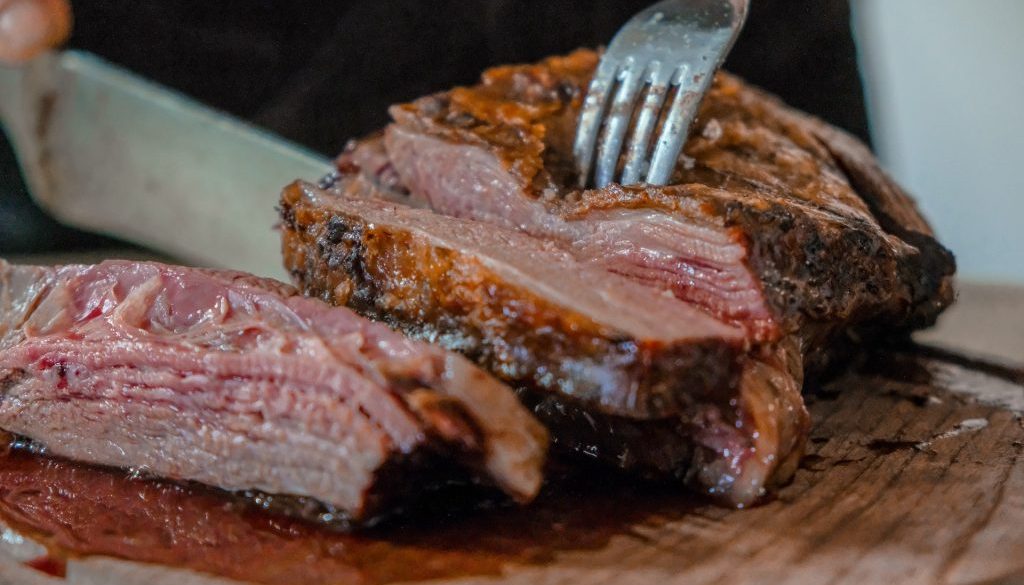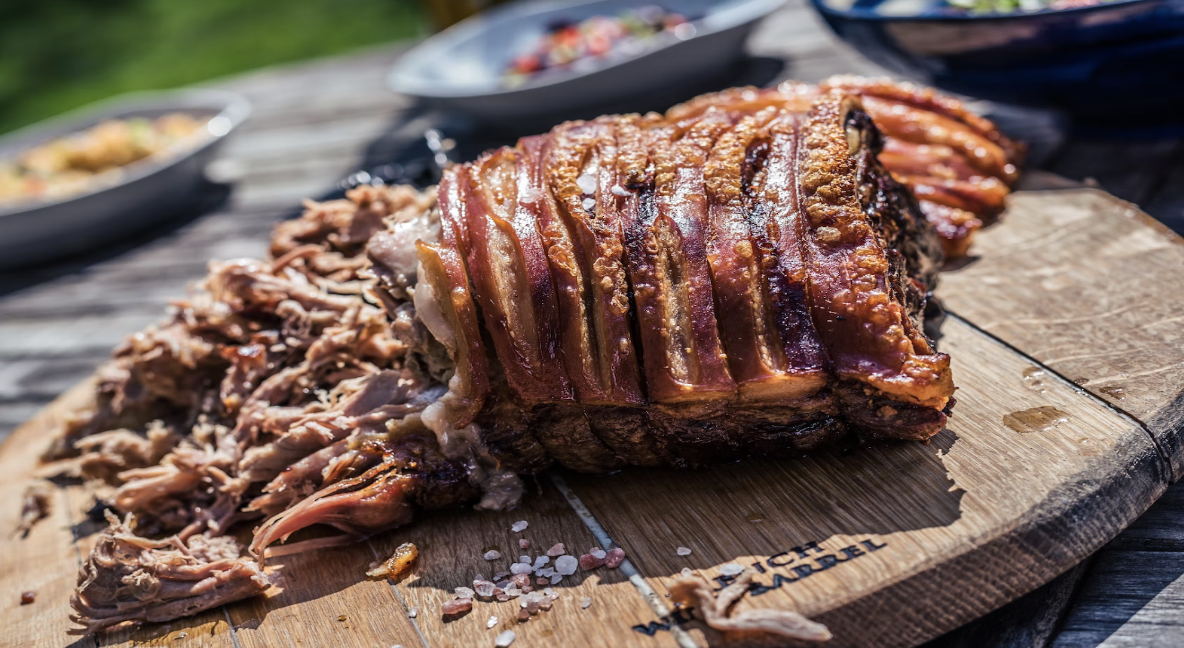BBQ Wagyu Beef

What is Wagyu Beef?
Wagyu is widely regarded in the beef industry as a luxury food thanks to its high standards of production, which creates a beautiful end product that is enjoyed by many around the world. Wagyu beef has been featured on the menus of many high-end restaurants and is consistently favoured by purveyors of fine food. This gourmand staple is truly a must-try experience. For regular wagyu consumers and those that are yet to try it, we have put together this guide to help you understand more about the fantastic product that is Japanese Wagyu Beef!
All About Wagyu
Most people have no clue about the various cuts of meat or the ways to cook your steak, too often relying on the standard fry and serve. It’s no surprise that many people also don’t quite know what is wagyu beef!
The term ‘wagyu’ literally translates to Japanese cattle but also specifically refers to the four unique classes of purebred cows. Black (Kuroge), Brown (Akage), Shorthorn (Nihon Tankaku) and Polled (Mukaku) are the four native breeds. The common ancestor of these cows is the Tajima cattle which were predominantly used for farming and agricultural purposes as they are fantastic endurance animals. These strong breeds of cow were found to have a unique disposition to storing marbled fat inside the muscle tissue, which means that the delicious fat is nicely integrated throughout the muscle.
How to Cook a Wagyu Steak
The first rule of cooking Wagyu is not to be afraid to cook it. It can often be daunting when preparing to cook such a fine cut of meat, but this is actually a very easy steak to cook. To get the most out of your cut of meat there are a few things you should try:
- Don’t cook in the cold! Leave your Wagyu for an hour before cooking it. It should be room temperature before you begin to allow a more even cook.
- Make full use of salt! Wagyu is a wonderfully fatty meat, so well seasoned, that even the basic salt and pepper, will make an amazing difference.
- You should aim for a nice sear. Salt, heat and wagyu fat will equal a lovely crispy and delicious crust
- Before your dig in, even just before it’s fully cooked, let it rest in a warm place. Its inner temperature will finish off the cook while allowing the juices to redistribute evenly.
Storage
We sell a great variety of fresh and frozen wagyu beef from Japan, Britain, and Australia. Once your fresh wagyu arrives it is best to consume it within a few days (check the expiry date) or freeze it down as soon as possible if you would like to keep it longer. Our frozen meats should last a few months in the freezer but use your best judgement. Allow defrosting the day before or overnight in the fridge before cooking.
Where can I buy Wagyu Beef
Since the 1970s, the protection laws that prevented the export of Wagyu Cattle have been lifted. Fortunately for us non-japanese Wagyu lovers, we can now get types of British Wagyu right here on the home isles! Though nothing can compare to the original, these new British Standard Wagyu cattle farms have been doing very well.
If you want to try out fresh Wagyu, your best bet is to check out local suppliers across the country and order wagyu beef in the UK. There are a number of stores up and down the land, so getting to one shouldn’t be too much trouble. The best place to find the closest producer, restaurant or wholesaler is on the British Wagyu Breeders Association website!
If you want to import traditional Japanese Wagyu Beef, the cost will be higher, and the meat will likely have been frozen at some point. It is far better to experience the joy of Japanese Wagyu Beef while in Japan itself. However, if you are dead set on getting the original in your own home, then the best place to check is the Fine Food Specialist site!
Japanese Wagyu Beef Vs Non-Japanese Wagyu Beef
Each country has their own grading system for assessing the quality of the wagyu beef. Each farm will have its own unique set of conditions, from climate to soil and even water supplies, which can alter the taste of the beef. Wagyu farms place a huge emphasis on the environment in which the cattle are raised and go to great lengths to ensure that the cows lead a stress-free and healthy life with plenty of space to roam around. Genetics also plays a huge part in the varying flavours of wagyu on the market. Wagyu was protected as a ‘national treasure’ by the Japanese government up until the 1970s. Since then, wagyu breeds have been brought to Australia and Britain and have expanded into their respective beef industries. Japan has much more detailed grading assessments compared to Australia and the UK, placing a great emphasis on marbling and the purebred status of the cattle.

How does the Wagyu Beef Grades System Work
Japan has strict criteria for classifying beef as wagyu from the breed of the cow down to the grain it feeds on. Each cow is individually assessed to prove that they are genuine wagyu to prevent imitation breeds from making their way into the market. The Japanese Meat Grading Association (JMGA) grades the wagyu based on the cow’s yield and the meat’s quality.
Yield means how much high-quality meat one cow produces and is graded from C to A, with A being the highest possible grade.
Yield Score Assessment
A – Above Average
B – Average
C – Below Average
The criteria for quality are based on marbling, colour and brightness, firmness and texture, and lustre and quality of fat– this is graded out of 5, with 5 being the best. A further score is awarded based on the marbling of the beef and its yield. Wagyu beef grades also rely on the beef marbling score (BMS) is graded from 1 to 12, with grades 8-12 being the most outstanding quality of marbling.
Quality Score Assessment Beef Marbling Score
5 – Exceptional BMS 8-12
4 – Excellent BMS 5-7
3 – Very Good BMS 3-4
2 – Good BMS 2
1 – Average BMS 1
Wagyu Beef Price Explanation
Wagyu beef is the most prized and sought-after delicacy of beef in the world. For that reason, you can expect it to cost an arm and a leg. Or can you?
With the rising popularity of alternative Wagyu, particularly the recreations from Australia or here in the UK, the price has fallen significantly, for very often very little quality loss! If you want to get only the most expensive, prime cut of A5 Wagyu steak from Japan itself, then it could end up costing around $200 (£173) to $300 (£260) per pound. This would likely be Olive Wagyu, the rarest and most expensive steak in the world!
In the UK, you can find a whole range of cuts of meat that are Wagyu graded, and this can change Wagyu beef prices quite radically. At the same time, the size of the cuts of meat is often selected differently. However, for an average wagyu beef fillet steak, you can get it at only £48 per pound!
If you want to get the highest quality wagyu you can in the UK, there are ways of getting fully A5 Wagyu beef, which will set you back around £125 per pound! Quite an increase!

About Wagyu and the Types of Wagyu Beef
What gives wagyu its unique taste and texture?
The conditions that wagyu cattle are reared in are the most important factors in creating a delicious wagyu beef product. The wagyu cattle are fed in a specific way on a special diet of grains and do not lead a sedentary or confined life. Their specialised feeds are often made of a mix of rice straws, whole crop silage and concentrate. The cattle are given plenty of grasslands to roam and spring water. The genetic disposition of the wagyu to store fat internally is the largest contributor to the fantastic taste, which is incomparable to any other type of beef.
What is the best cut of wagyu beef?
The cuts you prefer are a personal choice and depend on how you enjoy your beef. Sirloin is the most sought-after cut of wagyu beef, as it boasts fine marbling. Ribeye is another hugely popular cut as it is highly marbled and has great fat content. A rib cap is a great option as it offers the best of both the tenderloin and rib eye area. The fillet is a highly sought-after cut as it is rarer and is considered the best cut by many connoisseurs for its texture and flavour.
By far the best grade is A5 Wagyu Beef, and you can often tell just by looking whether something is close to, if not already, A5 wagyu beef quality! The distinctive marbling is such that often the meat itself is near 50% fat!
Many people choose to have Wagyu Beef Burgers, an often much cheaper option to enjoy the fatty and tender meat. They can make some of the best burger meats, especially with gourmet burgers that need to have every flavour counted for and perfect!
Conclusion
Wagyu Beef is a delicacy well worth the money, it is regarded as the most delicious steak meat in the world for a reason! Wagyu beef is a strictly graded commodity, held to the highest standards, even by the classically strict Japanese standard! The result is one of the finest foods out there, something which is slowly but surely being recreated faithfully by foreign producers, including here in Britain!
If ever you wanted to try this delicacy, now is the best time! With more and more places selling this valued commodity, it has become easier than ever to test out this amazing meat, and with more and more options springing up across the country, you are now spoiled for choice!
